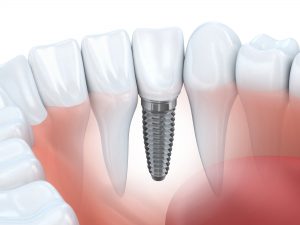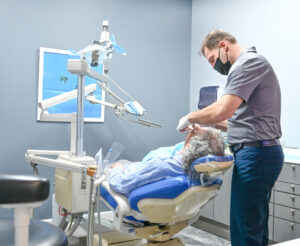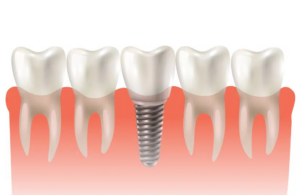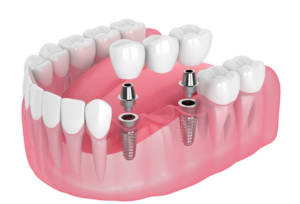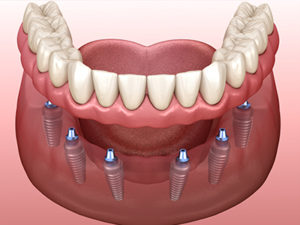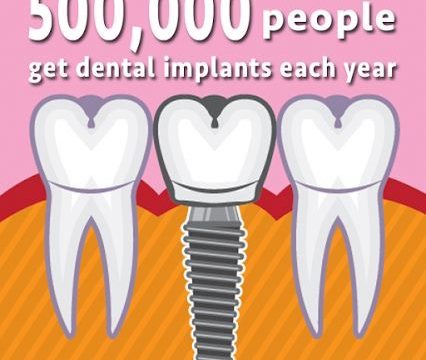
Looking for dental implants near.me? We understand that proximity and quality are paramount. This article is your straightforward guide to finding the right dental implant services close by. Expect to learn how to assess local providers, understand the implant process, and get insights into the costs—all to make your path to dental restoration as convenient and clear as possible.
Key Takeaways
- Identifying an experienced and conveniently located dental implant provider is critical in ensuring a successful smile restoration with factors such as proximity, availability, office hours, and reputation guiding the choice.
- The dental implant procedure involves multiple steps including an initial consultation, implant surgery with a healing period for osseointegration, and the restorative phase where custom crowns or dentures are placed, requiring committed post-treatment care.
- Costs of dental implants vary based on geographic location, materials used, and patient-specific factors, with many clinics offering financing options to increase affordability, requiring careful evaluation of potential dentists’ qualifications, experience, and patient testimonials.
Discovering the Best Dental Implant Providers in Your Area
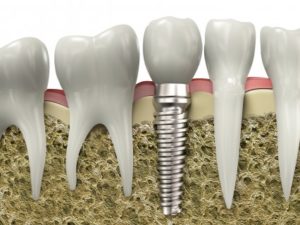
Of course, the location of your dental implant provider plays a crucial role too. Dental implant treatment is not a one-and-done procedure. It involves several visits throughout the implant treatment process, from the initial consultation to the final implant placement of your custom implant crown. Thus, finding a dental office that you can easily access is essential for a smooth, hassle-free journey towards your restored smile. If you’re looking for dental implants in Rockville, choosing a provider nearby ensures that your treatment process is convenient and stress-free. Some factors to consider when choosing a dental implant provider include:
- Proximity to your home or workplace
- Availability of public transportation or parking options
- Office hours that align with your schedule
- Reputation and experience of the dental practice
By considering these factors, you can ensure that you choose a dental implant provider that is convenient and reliable for your needs.
Online Research
The internet is a treasure trove of information when it comes to finding a reliable dental implant dentist. A simple search engine query can provide a list of potential providers in your area. But don’t stop there! Dig deeper by exploring online reviews and testimonials. These can offer valuable insights into the quality of care and patient satisfaction, helping you gauge the reputation of the dentist.
Furthermore, don’t forget to utilize social media platforms. They can serve as additional resources to assess the quality of service provided by dental implant dentists.
Personal Recommendations
While online research is valuable, personal recommendations add a layer of trust and credibility. If you know anyone who’s undergone dental implant procedures, don’t hesitate to ask them about their experiences. Friends, family, and coworkers can provide firsthand insights into their journey, including:
- The initial dental implant appointment
- The implant surgery
- The recovery process
- The final result
Their experiences can help you make an informed decision about dental implants.
These personal experiences can be invaluable in helping you choose a trusted dental implant provider, ensuring your journey towards replacing missing teeth is as smooth and successful as theirs.
Understanding the Dental Implant Process
Now that you’ve found your potential dental implant providers, let’s dive into what the dental implant process entails. The dental implant process is not as daunting as it might initially seem. It’s a systematic journey that starts with an initial consultation, followed by the implant surgery and then the restorative phase. Understanding these steps will not only equip you with knowledge but also help you feel more comfortable and well-informed throughout the entire implant treatment process.
Dental implants are designed to mimic your natural teeth. They are metal, screw-like posts that replace tooth roots, with attached artificial teeth that resemble and function like your natural ones. One crucial phase in the process is osseointegration, where the jawbone grows around the implant, providing stable support for the artificial teeth. Interestingly, nicotine can impair this process, so if you’re a smoker, you would be recommended to quit before the procedure. Ultimately, the success of dental implants hinges on the expertise of your dental implant dentist and your commitment to the process.
Initial Consultation
The initial consultation is your first step towards your new smile. This meeting with the dental implant dentist is crucial for addressing your concerns, answering your questions, and discussing potential treatment options.
Age is not as much a factor for dental implant candidacy as jawbone density and overall oral health. Younger patients might be advised to wait until skeletal development is complete to ensure the stability of implants. A good implant dentist will provide a personalized treatment plan tailored to your specific dental needs, setting the stage for a successful implant treatment process.
Implant Surgery
Embarking on the journey of dental implant surgery might seem intimidating, but rest assured, your comfort is a top priority. You’ll be provided with:
- Local anesthesia or sedation options to limit discomfort during the procedure
- During the surgery, the implant is surgically placed in the jawbone in less than 15 minutes
- The gum is secured over it to promote proper healing
Post-surgery, you can expect:
- Less discomfort than after a simple tooth extraction
- Some swelling and tenderness over the following days
- A crucial phase of healing involves the jawbone growing around the implant, securing it in place
- This healing process takes place over several months, bridging the gap between the initial and final appointments.
Restorative Phase
The restorative phase is where your new smile starts to take shape. After the healing phase, impressions of your mouth and remaining teeth are taken to create a custom crown, bridge, or denture that attaches to the implant. You don’t have to worry about being toothless during the treatment period, as temporary crowns, bridges, or full-arch prosthetics can be placed on the same day as the implant surgery.
In your final dental implant appointment, the healing abutment is removed, and a custom abutment and the new, aesthetically matching crown, bridge, or dentures are installed. This phase brings you one step closer to your new, confident smile.
Post-Treatment Care
Just like natural teeth, dental implants require proper post-treatment care to ensure their long-term success. This includes:
- Daily brushing
- Flossing
- Attending regular dental hygiene appointments to maintain the health of your gums and surrounding oral structures
- Dental implants should be professionally cleaned at least twice annually to help preserve their condition and avoid potential issues.
After the implant surgery, you’re recommended to adhere to a diet of soft foods and avoid smoking for at least the first two to three months to facilitate proper healing. The total healing time for dental implants typically ranges from three to six months, during which minor discomfort can be managed with over-the-counter medication.
Dental Implant Types and Options
When it comes to dental implants, there isn’t a one-size-fits-all solution. Dental implants come in various types, designed to cater to the unique needs of every individual. There are two primary types of dental implants: endosteal, which are inserted into the jawbone, and subperiosteal, which sit on top of the jawbone. These implants are made of biocompatible materials like titanium or titanium-zirconium, ensuring that they are well accepted by your body. Depending on your individual needs, your dentist may recommend removable or fixed artificial teeth or ‘snap-on dentures,’ which are implant-supported dentures that can be removed.
With dental implants, even if you have lost all your teeth, you can still regain a fully functional set of teeth with full-arch implants. For those seeking a prompt restoration solution, immediate-load dental implants can provide temporary teeth on the same day as the implant surgery, given that bone conditions are favorable. Once fully healed, dental implant restorations are strong and feel like a natural part of your mouth, though they may feel slightly different than natural teeth due to the lack of nerve endings. The number of implants you need depends on the extent of tooth loss and the type of dental restoration planned.
Single Tooth Implants
If you’ve lost just one tooth, a single tooth implant can be the perfect tooth replacement solution. A single-tooth implant consists of the implant post, an abutment, and a crown as a replacement tooth. This not only replaces the missing tooth but also ensures that the surrounding teeth remain untouched, preserving your overall oral health.
Clinics like Rockville Dental Arts offer single tooth implants as a treatment option, providing a permanent solution for individual missing teeth that blends seamlessly with your natural teeth.
Implant-Supported Bridges
If you’re missing several teeth in a row, implant-supported bridges are the recommended solution. Unlike traditional bridges, implant-supported bridges do not require grinding down adjacent teeth, preserving your natural tooth structure. They also provide better chewing efficiency and comfort than removable partial dentures.
Moreover, the stability of implant-supported bridges offers several benefits:
- Prevents bone loss by stimulating the jawbone, preserving your facial structure
- Provides a long-lasting solution for missing teeth
- Restores your ability to eat and speak comfortably
- Improves your overall oral health
However, to be a candidate for implant-supported bridges, you must have sufficient jawbone structure to anchor the implants.
Full Arch Implant Solutions
For those who have lost an entire arch of teeth, full arch implant solutions are available. These solutions utilize multiple-tooth implants with custom-made replacement teeth to restore your smile. The All-on-4 technique is one such solution, involving the careful placement of four dental implants in the jawbone, which serve as anchors for attaching a full set of permanent prosthetic teeth after a period of healing.
An alternative to the All-on-4 is fixed hybrid dentures, which provide a stable and durable full arch solution. These are secured by four or more implants to ensure even force distribution and patient comfort.
Assessing Dental Implant Costs and Financing Options

Dental implant treatment is an investment in your oral health, and understanding your financing options can make this investment more manageable. Many dental clinics offer in-house financing plans or payment options to help manage the cost of dental implants. Healthcare lenders and dental financing options, such as CareCredit, can also make the treatment more affordable, allowing qualifying patients to pay off their dental implants over time, with options for interest-free repayment.
Factors Affecting Cost
The dental implants cost is affected by various factors. For instance, your geographic location can significantly impact the cost due to varying overhead expenses and market demands in different regions. In urban areas or regions with a higher cost of living, dental implant procedures may cost more. The type and quality of materials used, such as titanium or zirconia, also play a significant role in determining the cost.
Furthermore, individual patient factors such as bone adequacy and pre-existing dental issues can affect the final cost. Some dental insurance policies may cover a portion of the cost of dental implants, so it’s worth checking with your insurer.
Financing Options
Financing options can make dental implant treatment more affordable. Many dental clinics offer in-house financing plans or payment options to help manage the cost of dental implants. These plans can be customized to suit your financial situation, making it easier to budget for your treatment.
Another viable option is CareCredit, a healthcare credit program that allows qualifying patients to pay off their dental implants over time. This can be a game-changer for many, offering options for interest-free repayment and making the cost of dental implants more manageable.
Evaluating Dental Implant Dentists: What to Look For
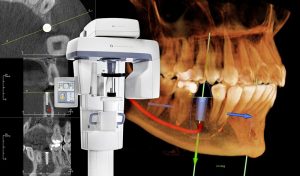
So, what should you look for when evaluating dental implant dentists? First and foremost, you should ensure that the provider has specialized education, training, and qualifications in implant dentistry. Members of organizations such as the American Academy of Implant Dentistry (AAID) adhere to strict ethical standards and rigorous training, providing an extra layer of assurance. In addition to qualifications, consider their experience and success rates, which can be determined by the number of dental implant procedures they have performed and the years of practice.
Qualifications and Credentials
When evaluating a dental implant dentist, their qualifications and credentials should be at the top of your checklist. Dental implant providers who are members of organizations such as the American Academy of Implant Dentistry (AAID) adhere to strict ethical standards and rigorous training, ensuring they’re well-equipped to handle your implant treatment. In addition to their formal education, the dentist’s dedication to continuous education in implant dentistry is also crucial to maintain their expertise in the field.
Some key qualifications and credentials to look for in a dental implant dentist include:
- Membership in professional organizations such as the AAID
- Completion of specialized training in implant dentistry
- Board certification in implant dentistry
- Years of experience in performing dental implant procedures
By considering these qualifications and credentials, you can ensure that you are choosing a dental implant dentist who is highly skilled and knowledgeable in the field.
Certified providers with a significant number of dental implant procedures performed are considered experienced and often offer additional services such as sedation dentistry. Lastly, implant dentistry specialists should be well-versed with the latest technology and practice in modern facilities to achieve precise and successful implant placements.
Experience and Success Rates
Experience is another critical factor to consider when selecting a dental implant dentist. The number of years a dentist has practiced performing implant procedures is an indicator of their expertise, which is often reflected in their success rates. The success rate of dental implants can be significantly influenced by the experience of the dental clinician performing the procedure.
Even when performed by clinicians in training, dental implants can yield satisfactory outcomes if the procedures are conducted under proper supervision. So, don’t just focus on the cost – ensure that your chosen dentist has a proven track record in implant dentistry.
Patient Testimonials
Patient testimonials offer a goldmine of information about a dentist’s performance. Reading past patient reviews can provide insight into the satisfaction level of others with a dental implant specialist. They can include experiences related to the surgery, recovery, and overall patient care.
Moreover, before-and-after photos of previous patients can demonstrate the successful results of their work. These photos can help you visually assess the transformative impact of dental implant procedures and set realistic expectations for your own treatment.
The Benefits of Choosing Dental Implants

In addition, dental implants have the potential to significantly increase your self-assurance. They can have a transformative impact on your confidence. They look and feel like your natural teeth, seamlessly blending with your existing teeth for a natural, radiant smile. The longevity and success rates of dental implants, which can exceed 90%, depend on the quality of parts, materials, and equipment used in the procedure. With the right care, dental implants can last a lifetime, making them a long-lasting investment in your oral health and overall well-being.
Potential Risks and Complications
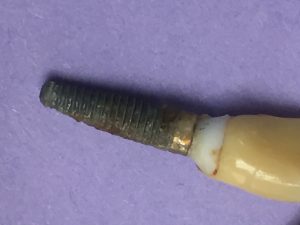
While dental implants offer numerous benefits, it’s important to be aware of potential risks and complications. Certain risk factors such as a history of periodontitis or smoking, diabetes, leukemia, and habits like grinding and clenching teeth or playing high-impact sports have been associated with increased implant failure rates. Incorrect placement of the implant might lead to improper fusion with the bone, causing discomfort, looseness, or pain and potentially necessitating the removal or replacement of the implant. Risks during implant surgery also include sinus damage in the upper jaw and possible nerve damage, which can have lasting effects.
Minor issues in adjacent teeth, such as decay or root damage, can also be exacerbated by implant surgery. In some cases, osseointegration failure can result in an unsecured implant that may either fall out on its own or require removal. Like any surgical procedure, dental implant surgery carries a risk of infection, which can be exacerbated by dental infections and gum disease. To mitigate these risks, patients are required to follow the dentist’s instructions for keeping the surgical site clean as part of post-operative care.
Summary
Choosing dental implants to restore your smile is a significant decision, one that requires careful consideration and planning. From finding the right dentist and understanding the process to considering the costs and evaluating different implant options, this guide has walked you through the essential steps towards achieving a brilliant, confident smile. Despite the potential risks and complications, the benefits of dental implants in enhancing your oral health, functionality, and overall quality of life far outweigh the challenges. Remember, the journey towards a restored smile is a partnership between you and your dentist. With the right care and adherence to post-treatment protocols, you can look forward to a lifetime of radiant smiles!
Frequently Asked Questions
What are the benefits of choosing dental implants over other tooth replacement options?
Choosing dental implants over other tooth replacement options provides a permanent solution for missing teeth, supports normal oral functions, enhances aesthetics, and can last a lifetime with proper care. It’s a reliable and long-term choice for tooth replacement.
What are the potential risks and complications associated with dental implant surgery?
There are potential risks and complications associated with dental implant surgery, such as increased implant failure rates, sinus and nerve damage, and risk of infection. However, these risks can be minimized by following post-operative care guidelines.
How do I choose the right dental implant dentist?
Choose a dental implant dentist based on their qualifications, experience, success rates, and specialized training in implant dentistry. Look for membership in professional organizations like the American Academy of Implant Dentistry and consider patient testimonials and before-and-after photos as well.
How can I afford dental implant treatment?
Consider financing options such as in-house payment plans, healthcare lenders, or dental financing options like CareCredit to make dental implant treatment more affordable. These options can allow you to pay off the cost over time with interest-free repayment plans.
What types of dental implants are available?
There are different types of dental implants available, such as single tooth implants, implant-supported bridges, and full arch implant solutions, recommended based on individual needs. Consider factors like the number of missing teeth and the condition of your jawbone when choosing the type of implant.

